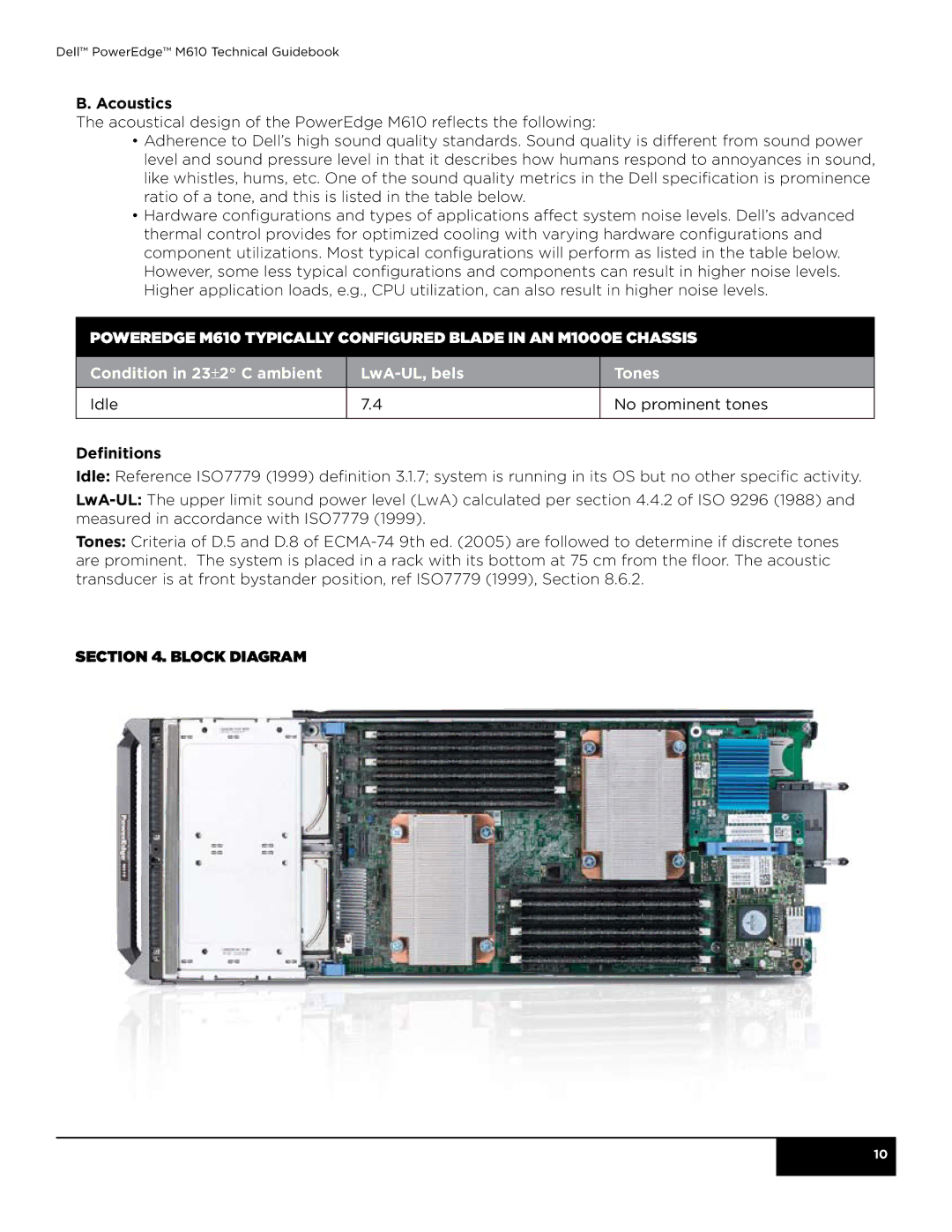
Dell™ PowerEdge™ M610 Technical Guidebook
B. Acoustics
The acoustical design of the PowerEdge M610 reflects the following:
•Adherence to Dell’s high sound quality standards. Sound quality is different from sound power level and sound pressure level in that it describes how humans respond to annoyances in sound, like whistles, hums, etc. One of the sound quality metrics in the Dell specification is prominence ratio of a tone, and this is listed in the table below.
•Hardware configurations and types of applications affect system noise levels. Dell’s advanced thermal control provides for optimized cooling with varying hardware configurations and component utilizations. Most typical configurations will perform as listed in the table below. However, some less typical configurations and components can result in higher noise levels. Higher application loads, e.g., CPU utilization, can also result in higher noise levels.
PowerEdge M610 typically configured blade in an m1000e chassis
Condition in 23±2° C ambient | Tones | |
|
|
|
Idle | 7.4 | No prominent tones |
|
|
|
Definitions
Idle: Reference ISO7779 (1999) definition 3.1.7; system is running in its OS but no other specific activity.
Tones: Criteria of D.5 and D.8 of
Section 4. Block Diagram
10
